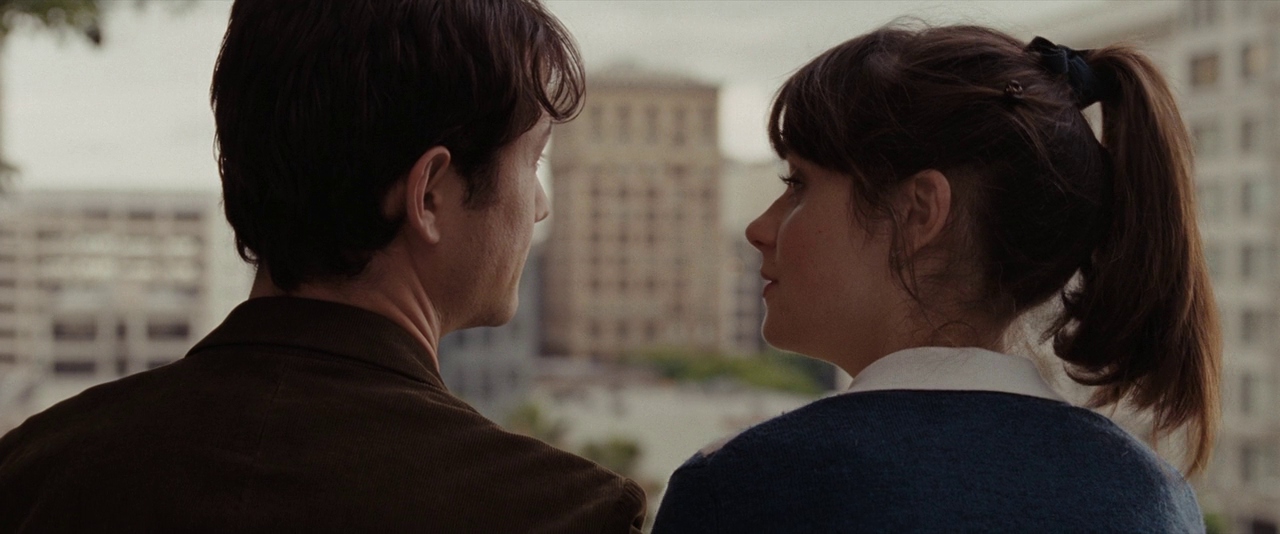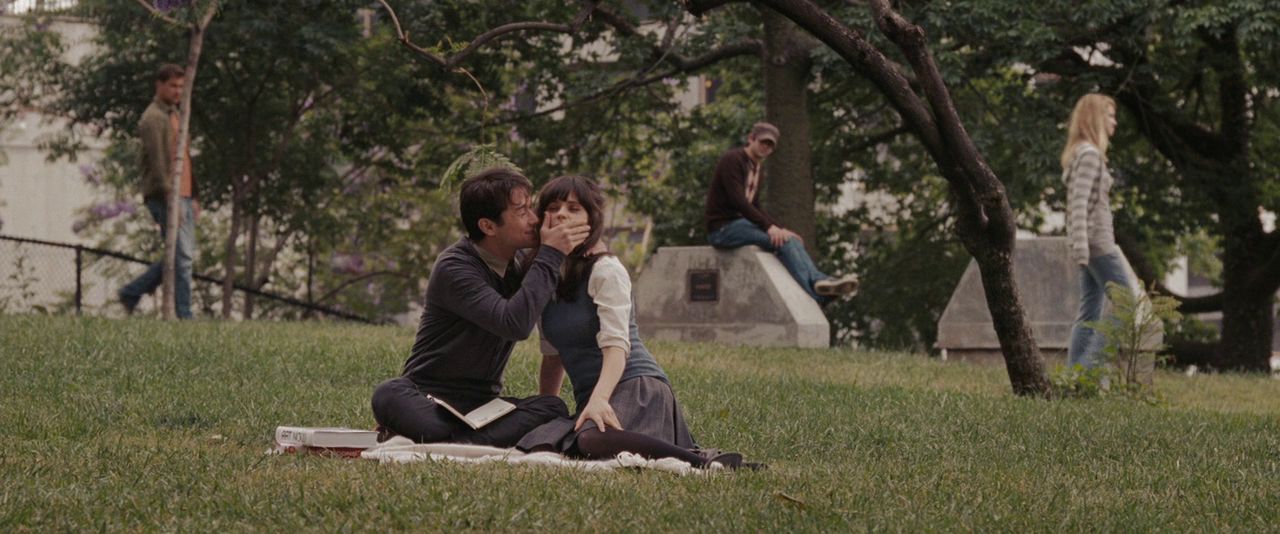
Director: Marc Webb
Wrtier: Scott Neustadter, Michael H. Weber,
Stars: Zooey Deschanel Joseph Gordon-Levitt Geoffrey Arend
Summary: After being dumped by the girl he believes to be his soulmate, hopeless romantic Tom Hansen reflects on their relationship to try and figure out where things went wrong and how he can win her back.
500 Days of Summer, directed by Marc Webb, is one of the most famous unconventional romantic films. In addition to its visual and narrative appeal, this movie delves deep into human relationships and our expectations of love. The story is about Tom (played by Joseph Gordon-Levitt) and Summer (played by Zooey Deschanel) in a complicated and broken romantic relationship. However, unlike clichéd love stories that focus on “true love” and “happy endings,” this film explores the concept of “unstable love.”

In this movie, Tom’s character demonstrates someone who is in love with his ideals of love and relationship. He doesn’t see Summer as a real person with her own emotions and needs but as the manifestation of his own desires. This point of view leads Tom to disregard all symptoms of Summer’s dissatisfaction and lack of commitment to their relationship. The film demonstrates very well how our expectations from love and our partners can detach us from reality, which ultimately lead to emotional failure.
On the other hand, Summer clearly states from the beginning that she isn’t looking for a serious, committed relationship. This proves that she is honest with herself and her emotions and she desires to experience life without romantic constraints. In many romantic films, female characters are portrayed as waiting for true love, but Summer defies this stereotype by giving no commitment to the relationship and even marrying someone else by the end.

These two characters represent two different perspectives on love: Tom is a symbol of idealism in love, while Summer is the symbol of realism and freedom in human relationships. One of the positive features of the film is that it doesn’t present either of these views as “right” or “wrong”; instead, both are valid and understandable in their own ways.
One of the most important narrative features of “500 Days of Summer” movie is its nonlinear storytelling. The story jumps around the various days of Tom and Summer’s relationship, and these time shifts effectively reflect Tom’s emotional and psychological changes. The film continuously alternates between happy and sad moments, which not only enhances the tension and appeal of the story but also reflects the emotional fluctuations Tom experiences in the relationship. As a result, instead of following a linear narrative, the audience better understands Tom’s conflicting and complicated emotions.
The film also smartly uses visual symbols and cues. For instance, Summer’s clothing is often blue, symbolizing her coolness and emotional distance from Tom. This symbolism is repeated throughout the film, subtly reinforcing the narrative.

Investigating the General Message of the Movie
One of the most important messages of “500 Days of Summer” is its critique of clichéd ideas about love. At the beginning, this statement is shown: “This is not a love story.” This sentence properly proves the film’s main message: “500 Days of Summer” is not a story about love, but rather a story about expectations, disappointments, and personal growth.
Throughout the film, Tom struggles with the idea that love always leads to a happy ending. He believes that if he loves enough, Summer will eventually return his affection. However, by the end, Tom faces the harsh reality: love is a mutual process, and simply being in love isn’t enough. Everyone has the right to end a relationship they don’t want.

Summer is also portrayed as someone who isn’t seeking love, yet by the end of the film, she marries someone else. This suggests that true love is unpredictable and uncontrollable. A person may not be seeking love at one point but later find that the right time for commitment has come with someone else. In this way, the film demonstrates how love is a dynamic, ever-changing process that cannot be confined to a fixed pattern.
The Concept of Personal Growth and Confronting with Failure
Another important aspect of the film is the concept of personal growth and confronting failure. By the end of the film, Tom transitions from a person full of romantic illusions to someone who has faced the reality of love and human relationships. After his breakup with Summer, he experiences a long period of depression and despair but ultimately realizes that he needs to rebuild his life and pursue new goals. This process of growth highlights the importance of confronting failures and getting lessons from them.

The film reminds its audience that romantic failures are not the end of the world; rather, they can be opportunities for growth and learning. In the end, Tom learns from his failed relationship with Summer and is ready to start a new stage in his life. This message clearly shows that love is only one part of life, and even after a major failure, life continues.
Conclusion
500 Days of Summer features nonlinear storytelling, complicated character development, and a thorough investigation of romantic expectations. This movie has become one of the most enduring romantic films. Unlike many love stories with happy endings, this film explores the complications of human relationships and unrealistic expectations of love. Through its precise analysis of characters, visual symbols, and messages, it’s obvious that “500 Days of Summer” is not only a simple romantic story but also, it’s like a mirror reflecting the puzzles of human relationships and the expectations from love.
Finally, “500 Days of Summer” reminds us that love doesn’t always mean happiness and a happy ending; rather, it can be an opportunity for growth, learning, and gaining a deeper understanding of ourselves.





Leave a Reply